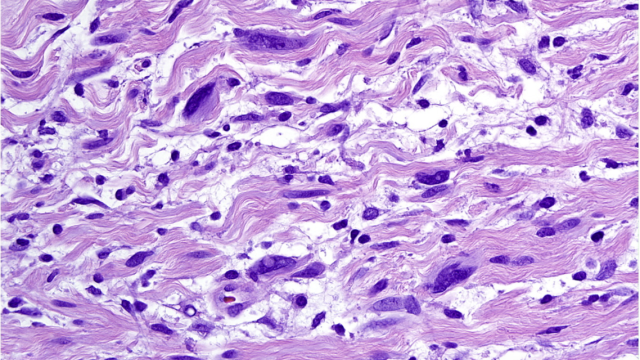
Several CCR scientists and alumni will be awarded at this year’s American Association for Cancer Research (AACR) Annual Meeting for their exceptional contributions to cancer research. AACR is the world's oldest and largest professional association related to cancer research, bringing together basic cancer researchers, clinicians and the patient community.
The awards recognize clinical and translational research successes, dedicated leadership and extraordinary research achievements by our CCR colleagues.
Brigitte C. Widemann, M.D., Chief of the Pediatric Oncology Branch and CCR Deputy Director, will receive the prestigious AACR-Joseph H. Burchenal Award for Outstanding Achievement in Clinical Cancer Research. Widemann is being recognized for her relentless and seminal contributions to the understanding of genetic cancer predisposition, the development of novel therapies for predisposition syndromes and rare pediatric cancers, and for her unwavering leadership of clinical trials. This includes clinical trials that have resulted in Food and Drug Administration (FDA) approval of the first-in-class MEK inhibitor, selumetinib, for the treatment of neurofibromatosis type 1 tumors. Widemann will present a featured award lecture during the virtual 2021 AACR Annual Meeting.
Douglas R. Lowy, M.D., Chief of the Laboratory of Cellular Oncology and Principal Deputy Director of the National Cancer Institute (NCI), will receive the AACR Margaret Foti Award for Leadership and Extraordinary Achievements in Cancer Research. This award recognizes a true champion of cancer research whose leadership and extraordinary achievements have had a major impact on the field. Lowy will receive this prestigious award in recognition of his steadfast leadership of NCI since 2010, his seminal fundamental research that has led to the development of three FDA-approved human papillomavirus vaccines and his leadership contributions associated with the National Institutes of Health’s response to the COVID-19 pandemic. Lowy’s award lecture will be available for on-demand viewing through the virtual AACR Annual Meeting 2021 platform.
Stephen J. Chanock, M.D., Director of the Division of Cancer Epidemiology & Genetics and former tenured Investigator in CCR’s Pediatric Oncology Branch, will receive the AACR-American Cancer Society Award for Research Excellence in Cancer Epidemiology and Prevention. Chanock will be honored in recognition of his pioneering role in the discovery and characterization of cancer susceptibility alleles, his paradigm-shifting contributions to the fields of cancer epidemiology, biomarkers and prevention, and for his visionary interdisciplinary approaches to cancer research, which have and continue to impact investigators worldwide.
Nima Sharifi, M.D., Director of the Center for Genitourinary Malignancies Research at Lerner Research Institute, Cleveland Clinic, and former CCR clinical fellow, will receive the AACR-Waun Ki Hong Award for Outstanding Achievement in Translational and Clinical Cancer Research. This award recognizes a worthy cancer researcher who has conducted highly meritorious translational and clinical cancer research anywhere in the world and who has not yet reached 51 years of age at the time of the award presentation. Sharifi will be recognized for his pivotal contributions to the understanding of how steroid metabolism contributes to prostate cancer progression, defining the first example of a gain-of-function steroidogenic enzyme missense mutation that permits dihydrotestosterone synthesis from adrenal precursors. In a series of clinical studies, he illustrated that this missense mutation represents an effective predictive biomarker in castration-resistant prostate cancer. Sharifi will give a CCR 20th Anniversary Distinguished Alumni Grand Rounds virtual lecture April 23.
Curtis C. Harris, M.D., Chief of the Laboratory of Human Carcinogenesis, was elected to the 2021 class of fellows of the AACR Academy. Harris was elected for his essential contributions to cancer risk assessment and epidemiology and identification of cancer biomarkers; for defining the environmental and molecular drivers of carcinogenesis, including linking aflatoxin B1 exposure to increased hepatocellular carcinoma risk in individuals who express particular p53 tumor suppressor mutations; and for demonstrating that childhood secondhand smoke exposure directly correlates with an increased risk of lung cancer in adult nonsmokers, specifically those harboring MBL2 mutations.
These awards will formally be made at the AACR Annual Meeting, which will be held virtually April 10-15 and May 17-21.
We are proud of our colleagues for these outstanding achievements and gratified that the CCR continues to enable some of the most impactful cancer research.


